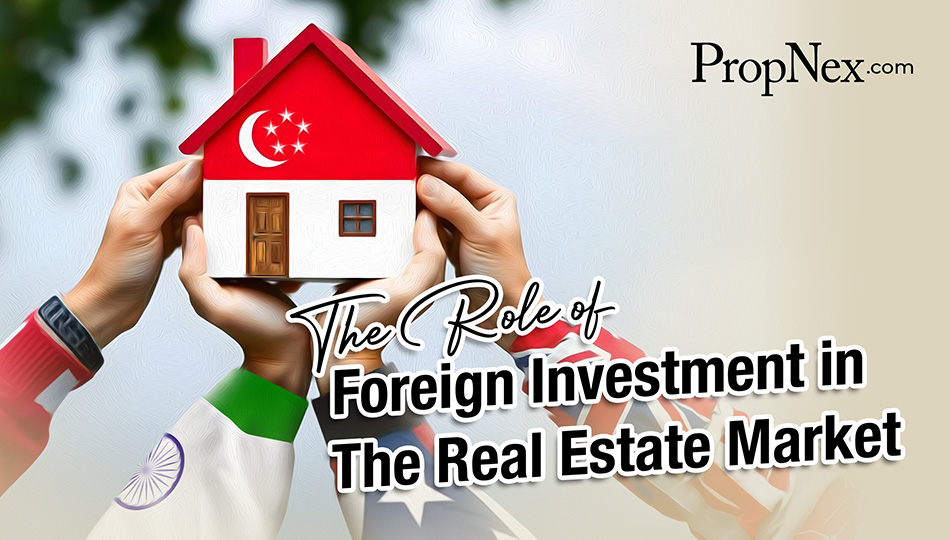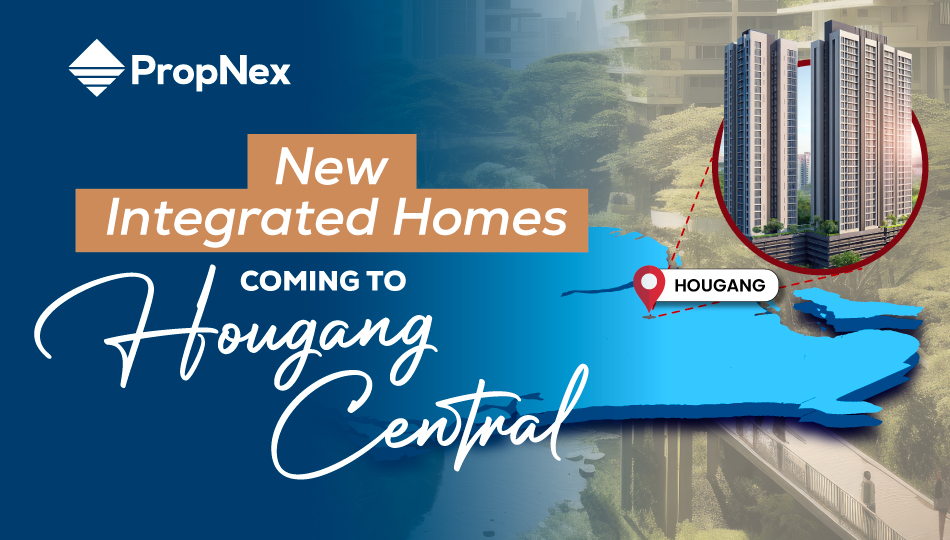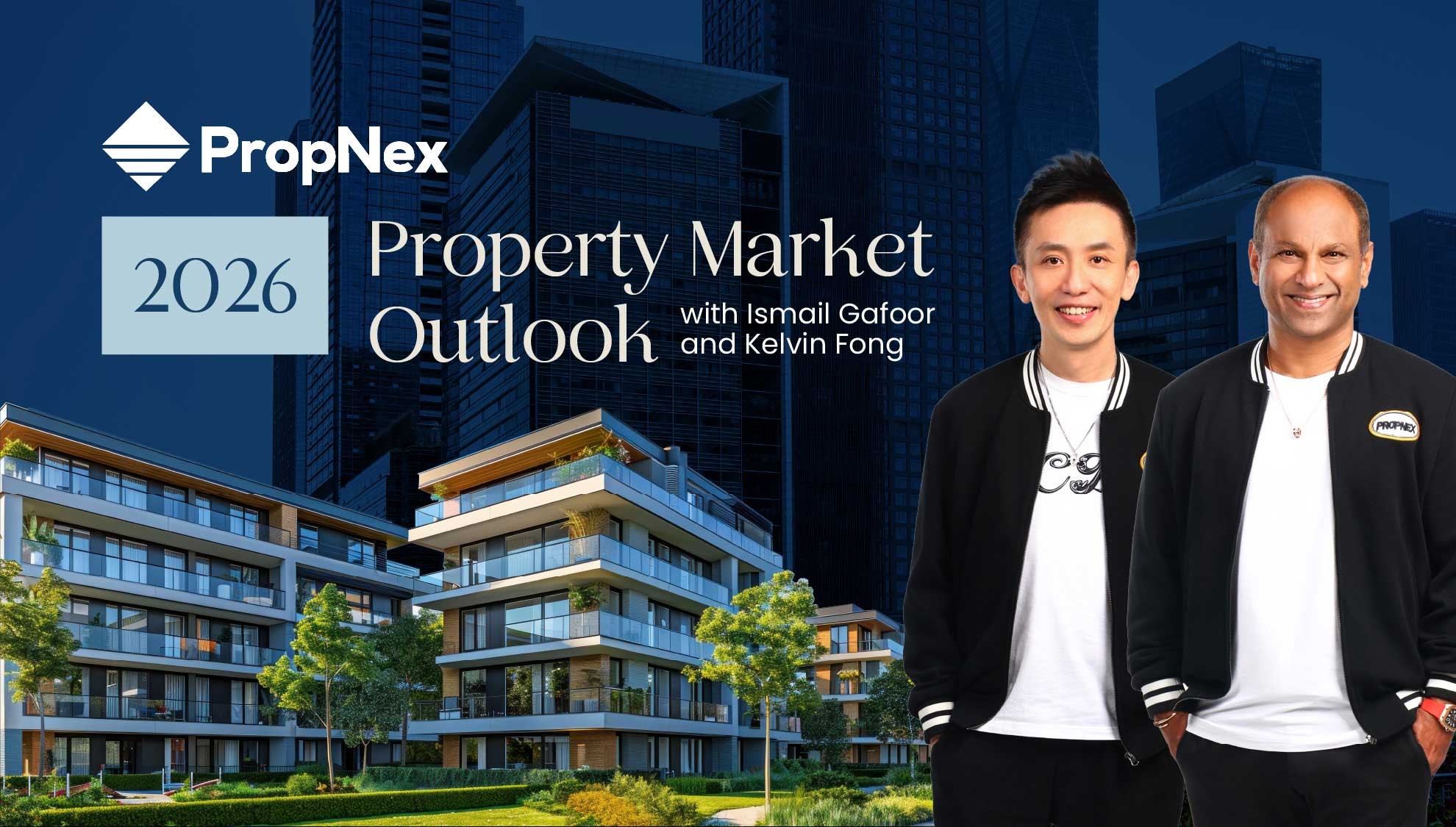The Role Of Foreign Investment In The Real Estate Market


Singapore, a global financial hub and one of the world's most developed economies, has long been a magnet for foreign investment. The real estate market is no different, with foreign investment playing a significant role in shaping its dynamics.
Such investments often bring in substantial capital, drive up property values, and contribute to the overall economic growth of the country. However, foreign involvement in real estate is a complex topic, balancing benefits and challenges for local markets and economies. In this article, we will delve into the role of foreign investment in Singapore's real estate market, exploring its impact on property prices, market trends, and regulatory measures.
Foreign direct investment (FDI) in Singapore is not a recent thing. When Singapore gained independence in 1965, the government's focus was on shifting its economy from a low-wage, labour intensive model to a high-tech, knowledge-driven one. To do so, they launched a series of 5-year plans that boosted urbanisation and rapid industrialisation. The country's stable political climate, strategic location, and robust legal framework have thus attracted investors from across the globe.
During the 60s and 70s, foreign investments were mainly MNCs looking to establish manufacturing bases in Singapore. Technology, logistics, and finance became an attractive point during the 80s and 90s. Today, Singapore is a hub for investing opportunities, with various sectors contributing to the vibrant economy we are so familiar with.
Source: Singapore Department of Statistics (DOS)
As you can see from the graphic above, the real estate sector contributed 3.1% of Singapore's economy in 2023. While this is not a significant number, it is a growing trend, seeing that it is a 0.2% increase from DOS's 2021 statistics. From commercial properties, such as shophouse investments to residential properties, Singapore's reputation as a safe and lucrative investment destination grew.
Source: The Straits Times
That being said, the number of foreign buyers (including PRs) have decreased in recent years. From 2012 to 2019, foreigners made up more than 20% of private property sales. According to URA, 1054 condo units were sold to foreigners in 2022. This number dropped to only 321 condos from May 2023 to April 2024. Most of the foreign buyers are from China, Malaysia, India, USA, and Indonesia.
Real estate investment among foreigners is predominantly concentrated in the luxury property segment. High-end condo developments in prime districts, such as District 9, 10, and 11 (comprising areas, such as Orchard Road, Tanglin, and Bukit Timah) are particularly popular, with foreigners the predominant tenants.
The Nassim @ District 10
Source: Investment Suite
Wallich Residence @ D2
Source: Investment Suite
When foreign capital flows into a market, it typically raises demand for high-end, luxury properties. In turn, this can lead to an increase in property prices, especially in prime locations. Such demand can create a ripple effect across the broader real estate market, where not only luxury homes but also mid-tier properties may experience a price hike due to the general uptick in property values.
Price appreciation:
Since 2020, private non-landed residential properties (blue line) and landed residential properties (red line) have seen a significant increase of 26.95% and 40.18%, respectively, driven partly by foreign demand. Even with the government implementing cooling measures, such as increasing the ABSD for foreigners from 30% to 60%, the luxury property segment continues to rise slowly.
Source: The Business Times
Market segmentation:
Foreign investors tend to gravitate towards luxury properties, often located in the CCR. This demand may lead to distinct market segmentation, with foreign buyers disproportionately influencing the high-end segment. As a result, luxury properties often become their own niche market, which can be characterised by more international competition, premium amenities, and higher prices.
Rental yields:
The high demand pushes up property prices, especially in prime areas, such as the CBD, Sentosa, and Orchard. However, rental income has not increased at the same pace, leading to yield compression, with rental yields in Singapore averaging between 2% to 3%. Additionally, the rental market for such properties is relatively niche, catering mainly to high-income professionals or expatriates. While they might offer potential for capital appreciation, they may not provide the high rental returns observed in less expensive segments.
The Singapore government has implemented various measures to regulate foreign investment and ensure the stability of the real estate market. These measures aim to curb speculative buying, prevent overheating, and maintain housing affordability for local residents.
Additional Buyer's Stamp Duty (ABSD):
Introduced in 2011 and revised several times since, the ABSD is a key tool used to manage foreign investment. As of the latest revision, foreign buyers are subject to an ABSD of 60% on any residential property purchase. This substantial tax is intended to deter excessive foreign speculation and stabilise property prices.
Total Debt Servicing Ratio (TDSR):
Implemented in 2013, the TDSR framework limits the amount of a borrower's gross monthly income that can be spent on debt repayments. The current TDSR threshold has been tightened from 60% to 55%. This measure ensures that both local and foreign buyers do not over-leverage themselves, promoting financial prudence.
Seller's Stamp Duty (SSD):
To discourage short-term speculation, the SSD imposes a tax on properties sold within a certain period after purchase. For residential properties, the SSD applies to properties sold within three years of purchase, with rates ranging from 4% to 12% depending on the holding period.
The role of foreign investment in Singapore's real estate market is expected to evolve in response to global economic conditions, local policy changes, and shifting investor preferences.
Shifts in investor profiles:
While Chinese and Southeast Asian investors have traditionally dominated the market, there is growing interest from Western investors, particularly those seeking safe-haven assets amidst global economic uncertainties. Additionally, with Singapore forging a Free Trade Agreement with USA, Switzerland, Norway, Liechtenstein, and Iceland, nationals of these countries are not subjected to the 60% foreigners' ABSD.
We believe that we will see an influx of foreign investors from these countries, leading to greater diversification of investor profiles that could generate varied demands across different property segments.
Technological advancements:
Technology is playing an increasingly significant role in the real estate market. Virtual tours, blockchain-based property transactions, as well as AI-driven valuation and investment platforms are making it easier for foreign investors to buy and manage properties remotely. This trend is likely to continue, further facilitating foreign investment.
Sustainable and green properties:
There is a growing demand for green spaces, as well as sustainable and eco-friendly properties among both local and foreign buyers. Developments that incorporate green building standards, energy-efficient and smart home designs, and sustainable materials are likely to attract higher levels of foreign investment in the coming years.
One example is Midtown Modern, which is marketed as a luxury garden home in the city. The project, which is a mix-development, comprises 558 units and is expected to TOP at the end of 2024. The project boasts more than 400,000 square feet of landscape that not only adds to the aesthetic of the development but also helps keep the building cool. Every unit is technology-enabled, ensuring sustainability.
Policy Adjustments:
The Singapore government continually reviews and adjusts its policies to ensure market stability. Future policy changes could include adjustments to the ABSD rates, revisions to loan-to-value (LTV) limits, or the introduction of new measures to address emerging market conditions.
Foreign investment plays a pivotal role in shaping Singapore's real estate market. While it contributes to price appreciation, particularly in the luxury segment, it also brings in valuable capital that supports economic growth and development. The Singapore government's proactive regulatory measures are crucial in ensuring that this investment does not lead to market instability or reduce housing affordability for locals.
As global economic dynamics continue to evolve, the patterns and impacts of foreign investment in Singapore's real estate market will likely change. However, given Singapore's strong fundamentals, including its political stability, strategic location, and robust legal framework, it is poised to remain an attractive destination for foreign real estate investors in the years to come.
Views expressed in this article belong to the writer(s) and do not reflect PropNex's position. No part of this content may be reproduced, distributed, transmitted, displayed, published, or broadcast in any form or by any means without the prior written consent of PropNex.
For permission to use, reproduce, or distribute any content, please contact the Corporate Communications department. PropNex reserves the right to modify or update this disclaimer at any time without prior notice.












